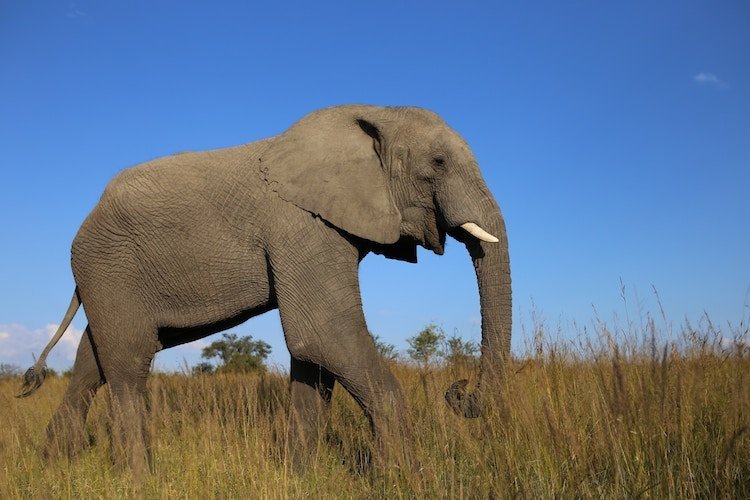This year the mainstream media has been full of stories about climate emergency, political scandal, crime increases, and other less-than-positive events. But, if you scratched below the surface, there were plenty of great feel-good news items to feel excited about. Ed Gould shares his top 19 positive news stories of 2019 to inspire and uplift you!
1. Over half of millennials eat in an environmentally-friendly way
According to the New York Post, a large survey conducted in the United States found that millennials have made significant changes to their diets in order to benefit the environment. The August poll, commissioned by Sweet Earth Foods, found that nearly 60 per cent of millennials had a low carbon footprint diet, including veganism and eating less red meat. Of these, most said they were motivated by climate change.
RELATED: Eat these 8 good mood foods
2. Eating greens really is good for you
Continuing the food theme, research published in May suggested that certain greens – in particular, broccoli and kale – contain compounds that are great at suppressing the growth of tumours and other cancerous cells. A team from Harvard Medical School in Boston spent time researching prostate tumours and their reaction to compound indole-3-carbinol (which appears naturally in green vegetables). Known as a suppressor protein, the compound could be used as a way to treat tumours and even prevent them from occurring in the first place, according to Medical News Today.

Mother always said “eat your greens”... and she was right! shutterstock/RossHelen
3. Breakthrough technology allows blind people to perceive light
In September, a novel technology was demonstrated in the US which allows blind people to gain more visual perception. A research team from UCLA Health used surgical implants in four blind patients to allow them to perceive light and dark. A wireless device 'looks' at objects which then sends signals to the implant. The brain is then able to perceive the implant's stimulation as patches of light and dark. In some cases, blind people have been able to sense individual objects and even movement.
4. Kayak across Europe for free
In May, a scheme was announced whereby tourists can kayak the great waterways of Europe without charge. Rather than paying to rent a kayak for a day or two during their stay, people will now be able to obtain them without cost. The catch? You have to collect rubbish from the canals in urban centres. The initiative is up and running in Denmark thanks to an organisation called GreenKayak but it's hoped the scheme will spread to other big cities with man-made waterways. Seems like a win-win situation!

Paddle power: clean up by kayaking
5. Free sanitary products for schools
Back in March, a pilot scheme offering free sanitary products for children and teens in England's secondary schools was announced, hoping to provide support for the 10 per cent of young women who cannot afford to buy menstrual products each month. This follows Scotland's lead. In 2017 the country became the first globally to provide free sanitary products to all females in schools, colleges and universities. UK activists hope the new scheme will be equally expanded.
6. The world is getting greener
If you think the planet is becoming more and more deforested you’re not alone. However, NASA brought a little happiness to this gloomy view. Its satellite imagery has shown that there are actually more trees, not fewer, than a few years ago. As reported by CNN in February, the US space agency has noted that both India and China have been planting trees and agricultural crops that have created more vegetation overall. Since 2000, it’s estimated that leaf-covered spaces of the planet have risen by some 2,000,000 square miles.

Green is go: there are more trees than ever before shutterstock/DugDax
7. A healthy gut can lower anxiety
The benefits of healthy gut bacteria have long been known to medical science as helping with digestion and all-round physical health. According to several reports back in May, Chinese researchers found that a healthy gut may also lead to better mental well-being. A team at the Shanghai Jiao Tong University School of Medicine discovered that consumption of foodstuffs containing probiotics – which help to promote a healthy gut – could lead to lower anxiety levels. In fact, the researchers said their work demonstrated that it was a good idea to treat anxiety symptoms by regulating a patient's intestinal microbiota.
RELATED: Panic attacks – 12 tips on what to do when anxiety hits hard
8. Hugging is great for mental health
You may have known it all along but hugging really is good for you – and a group of researchers believe they've proved it. In a study of over 400 individuals, people who hugged were shown to feel less negative responses throughout their entire day after they'd received one. People who had been hugged showed lower blood pressure as well as augmented levels of happiness hormone oxytocin. Interestingly, single people and those in partnerships were found to demonstrate the same sorts of responses within this study from November.

A hug a day keeps the demons away! shutterstock/sebra
9. Playing games helps thinking, study finds
Scientific research conducted over decades found that playing board games which involve memory and problem solving can help you to retain thinking skills in old age. Psychologists from the University of Edinburgh studied over 1,000 people in their 70s to come up with the findings which focussed on non-digital games such as bingo, chess, cards and crosswords. In November, University of Edinburgh's Dr Drew Altschul said: “These latest findings add to evidence that being more engaged in activities during life might be associated with better thinking skills in later life.”
RELATED: Cognitive impairment - 5 key ways to reduce the risk as you age
10. Saunas may help reduce heart disease risk
According to The Independent, a study found that regularly taking saunas can help to prevent heart disease. The work, published in the BMC Medicine journal in September, claimed that cardiovascular disease is less common among the over-50s age group if they enjoy saunas on a frequent basis. The research was conducted in Finland over the course of a 15-year period. It's not yet known why saunas seem to be so beneficial for heart health in older age. However, one researcher said that it could be tied up with the fact that taking saunas is a relaxing activity that may help to lower blood pressure.

Saunas could reduce heart disease shutterstock/Med Photo Studio
11. Wind energy study states Europe could power the world
In reports made in The Independent in August, an academic study calculated that Europe has sufficient space and the right meteorological conditions to supply enough electrical energy to meet the whole world's needs. By 2050, 497 exajoules of power could be derived from wind in the continent, which is more than enough to go around. The study said that a mixture of both onshore and offshore would be needed to meet this, especially as global demand rises. Turkey and Norway were singled out as countries which were particularly suited to wind energy.
12. Liver transplants could be revolutionised
According to a report on the BBC, scientists have developed a new procedure for conducting liver transplants. This, it's hoped, will help to speed up the rate at which they can be transplanted, helping to slash waiting times. Donated livers are normally chilled, which mean they can degrade. The new idea is to use perfusion machines in order to keep livers in good condition for longer, offering greater flexibility for finding suitable recipients.
13. The tiger population is on the up
In July, The Daily Telegraph reported that the numbers of tigers roaming around India may have risen by as much as 30 per cent since 2014. Back then, new measures were brought in to protect these big cats. This means that well over two-thirds of the wild tiger population now lives within India's borders. The country is now on track to meet its internationally agreed commitments to improve global tiger numbers by creating safer habitats for these impressive creatures.

The cat's back: there are more tigers in Nepal than previously thought
14. Paper recycling receives a boost
In September, The Week reported that a clever new technique for 'unprinting' paper had been developed at Rutgers University in the USA. Scientists there have created a way of erasing black, blue, red and green ink from printed pages, meaning already-printed documents can be erased and then reused (up to five times). As its done locally, this eliminates the costs and energy consumption associated with transporting office paper to reprocessing centres.
15. Survey revealed what really makes us happy
A study reported in the Metro revealed the keys to happiness in June. The survey, commissioned by private healthcare group Bupa, showed that having a loving relationship and being close to family was most important when it came to what make us feel happy. Other things that made the Top Ten included getting at least eight hours of sleep, regular exercise, owning a pet, connecting with nature, and – crucially, perhaps – laughing frequently. The study asked 2,000 UK-based adults aged 55 what they though the secrets to a long and happy life were. Interestingly, the average age respondents said they finally realised what the secrets to happiness were was 49!

A giggle is good: laughter is a key happiness provider
16. New technique could make chemotherapy more bearable
In January, a team of American medical researchers revealed how chemotherapy can be made more effective by concentrating it in the parts of the body. The idea is to insert tiny sponge-like materials into the patient's bloodstream so that the chemicals used in the therapies cannot pass through. The technique has been referred to as a 'chemofilter' and is something that could potentially improve the lives of many cancer sufferers. The study was conducted by Professor Nitash Balsara from the University of California at Berkley.
17. Marijuana may be more potent than aspirin
According to Sky News in July, a scientific study into anti-inflammatories found that certain molecules in cannabis plants could be up to 30 times stronger than common drugs like aspirin. The work, undertaken in Canada, builds an even stronger case for the use of certain therapies derived from cannabis plants. According to the lead researcher, Professor Tariq Akhtar, the molecule in question has no psychoactive effect, potentially making it ideal for a new medicine.
18. Poaching of African elephants in decline
Thanks to successful anti-poaching initiatives in much of central and southern Africa, the number of elephants there falling prey to ivory hunters has fallen over the last six years by up to 50 per cent. In fact, CBS reported that one reserve in Mozambique had seen no elephants lost to poachers over the course of an entire 12-month period – remarkable given the number of animals that used to be hunted. Specialists claim the real driver in this success has been lowering global demand for ivory which, in turn, disincentives the practices of poachers in the first place.

Tusk luck: poaching of African elephants is in decline
19. Breakthrough found in the fight against Parkinson's disease
Scientists at the University of Ontario in Canada found a way to restore movement to patients with advanced stages of this debilitating condition. According to reports from the BBC in April, the team's brain implantation method has produced results which exceeded all expectations. They hope to turn their approach into a full treatment which will restore both mobility and confidence to sufferers. ●
Written by Ed Gould
 Ed Gould is a UK-based journalist and practitioner of Reiki.
Ed Gould is a UK-based journalist and practitioner of Reiki.


Join the conversation
You are posting as a guest. If you have an account, sign in now to post with your account.